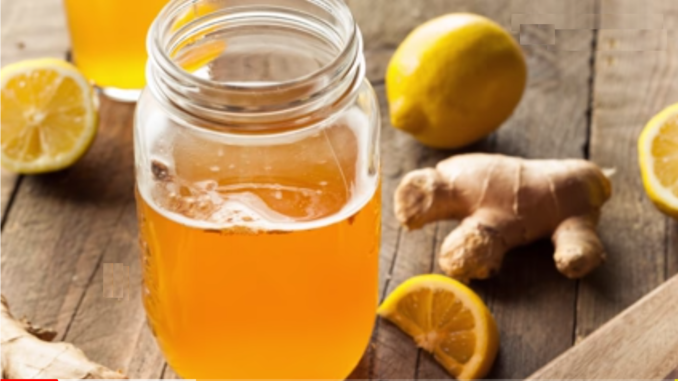
The health benefits of tea are widely accepted, but not all tea is necessarily good for you. Kombucha tea (not to be confused with kombu-cha, or kelp tea) is a fermented drink from Asia reputed to be around two thousand years old, but only recently (two or three decades ago) arrived in the Americas. In the last few years, kombucha has become another health craze. The drink’s boosters say it can:
- Aid digestion,
- Rid the body of toxins,
- Boost energy,
- Boost metabolism,
- Boost cardiovascular,
- Boost immune system,
- Assist with weight loss,
- Prevent high blood pressure,
- Reduce blood sugar levels,
- Improve liver and kidney function,
- Prevent heart disease,
- Prevent cancer,
- Prevent hair loss,
- Reduce inflammation,
- Treat AIDS,
- Relieve depression,
- Stop aging,
- Cure anorexia, arthritis, atherosclerosis, constipation, and diabetes.
Looks like that covers just about everything, doesn’t it? However, very little in the way of scientific study has been done on Kombucha, so it’s no surprise that there’s little or no evidence that it can provide any of the above listed health benefits.
The ingredients include black, green, white, or red tea, sugar, bacteria, and yeast. The combo is allowed to sit and ferment for anywhere from one week to three weeks. Together the bacteria and yeast become a SCOBY (symbiotic colony of bacteria and yeast); a catalyst for fermentation. A small amount of naturally-occurring alcohol and carbonation are byproducts of the process. Fermentation is also how yogurt, sauerkraut, and kimchi, are made, and fermented products are frequently recommended by nutrionists for improving gut health. Fruit and other ingredients are often added to the product, frankly to make it taste better. In recent weeks, I’ve sampled a handful of brands and flavors of Kombucha. Most of them had a strong vinegar taste paired with a strongly repulsive taste of indescribable disgust. (It wasn’t my idea to try this health fad). I did sort of like the watermelon flavored product I tried most recently. In fairness, it should be noted that many people love kombucha. I’m just not one of them. If I could identify some positive way in which kombucha improved my health and well being, I’d drink the stuff no matter how bad I think it tastes.
The live bacteria in Kombucha is considered to be a probiotic, which of course is desirable for gut health. Probiotics may help people suffering from diarrhea, irritable bowel syndrome (IBS), and other digestive system maladies, and possibly also strengthen your immune system.
Naturally, the medical community is highly skeptical of claims made in favor of kombucha.
When taken by mouth: Kombucha is POSSIBLY SAFE for most adults. Kombucha has been reported to cause some side effects, including stomach problems, yeast infections, allergic reactions, yellow skin (jaundice), nausea, vomiting, and death. When kombucha is made under conditions where it can be contaminated with disease-causing fungus or bacteria, such as in the home setting, it is POSSIBLY UNSAFE. Also, kombucha that is made in containers that contain toxic chemicals, such as the lead in pottery glazes, is LIKELY UNSAFE. These chemicals can get into the kombucha and might cause side effects and/or poisoning.
WebMD
In summary, no one really knows for sure if kombucha tea offers health benefits or not and if it does we don’t know if the benefits outweigh the risks.
“Is Kombucha Good for You? – Sharp Science” (2:54):
Question of the Night: What’s your preferred healthy beverage?
